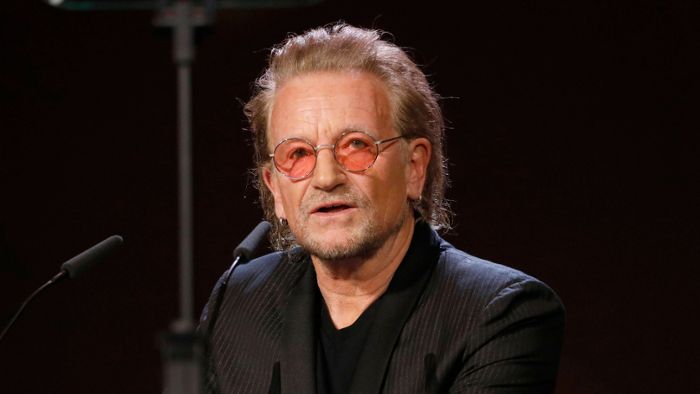Understanding Bono: Music Legend and Humanitarian

Introduction
Bono, the frontman of the iconic Irish rock band U2, is not only a globally recognized musician but also a prominent humanitarian activist. His influence extends far beyond the music industry, making him a significant cultural figure in advocating for various social issues worldwide. With recent developments in his career and continued commitment to pressing global challenges, Bono remains a relevant and transformative figure in today’s world.
Bono’s Musical Legacy
Bono, born Paul David Hewson in 1960, formed U2 in 1976 with bandmates The Edge, Adam Clayton, and Larry Mullen Jr. Over the decades, U2 has sold over 150 million records and won 22 Grammy Awards, making them one of the most successful bands in music history. Their thoughtful lyrics and anthemic sound resonate with audiences globally, often addressing themes of love, faith, and social justice.
U2’s recent album, “Songs of Surrender,” released in March 2023, is a collection of reimagined songs from their extensive back catalog. Critics praised the album for its fresh perspective on timeless tracks, showcasing Bono’s lyrical depth and vocal prowess even after decades in the industry.
Humanitarian Efforts
Beyond music, Bono is deeply involved in humanitarian causes, particularly in the fight against poverty and disease. He co-founded DATA (Debt, AIDS, Trade, Africa) in 2002, advocating for African social justice and economic development. He is also a co-founder of (RED), a global initiative that partners with brands to raise funds for the Global Fund to fight AIDS, tuberculosis, and malaria.
In recent years, Bono has been vocal about climate change and equity in access to the COVID-19 vaccine. In a recent interview, he emphasized the urgent need for developed nations to support global vaccination efforts and invest in sustainable solutions to combat climate change. His active role in these movements highlights the intersection of art and activism, inspiring countless individuals to engage in social issues.
Conclusion
As Bono continues to evolve both as an artist and an advocate, he remains a beacon of hope and inspiration for many. His ability to intertwine music with meaningful advocacy is not only a testament to his talent but also to his dedication to making the world a better place. Looking ahead, Bono’s efforts in combating climate change and global health disparities will undoubtedly shape his legacy as one of the most impactful musicians of our time. For fans and admirers, Bono exemplifies the power of using art as a platform for change, encouraging readers to reflect on how they can contribute to a more equitable world.





